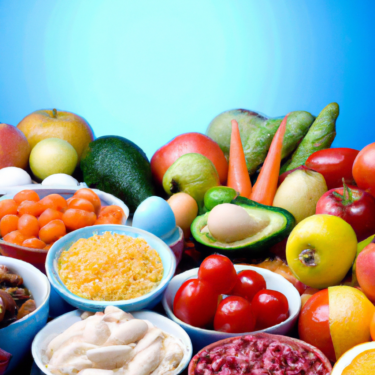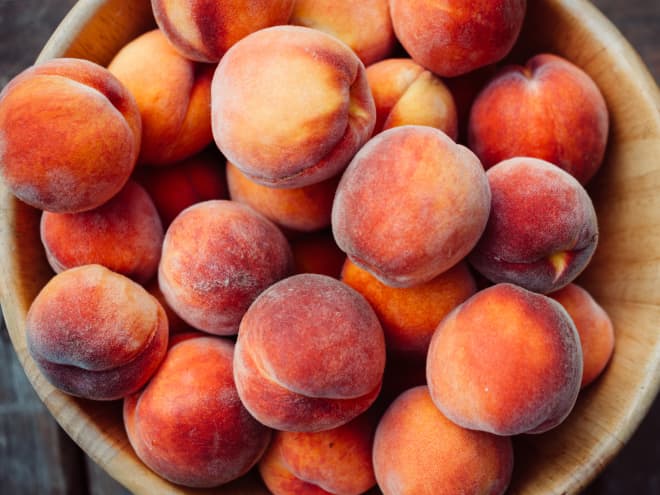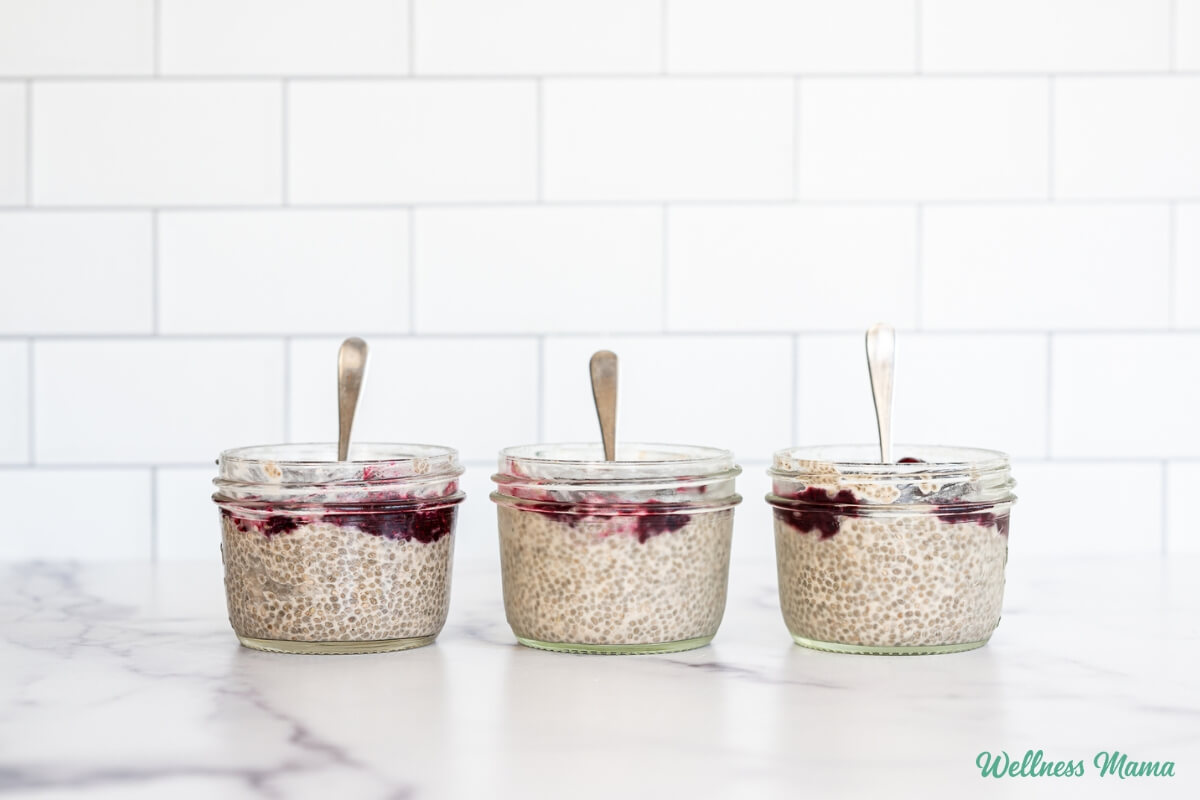Weight Loss For Your Abs Carbohydrates
You’re probably no stranger to the never-ending quest for achieving those toned abs that everyone admires. But did you know that the key to achieving your dream six-pack might actually lie in the types of carbohydrates you consume? In this article, we’ll explore how incorporating the right carbohydrates into your diet can make a significant difference in your weight loss journey and help you sculpt those abs you’ve always wanted. So get ready to say goodbye to bland diets and restrictive eating plans, because this is all about finding balance and indulging in the right carbs!

Understanding Carbohydrates
What are carbohydrates?
Carbohydrates are one of the three macronutrients that our bodies need to function properly, alongside proteins and fats. They are a major source of energy and play a crucial role in various bodily processes. Carbohydrates are composed of carbon, hydrogen, and oxygen atoms, and they can be classified into three main types: sugars, starches, and fibers.
Types of carbohydrates
Sugars, starches, and fibers are the three main types of carbohydrates, each with its own characteristics and effects on the body. Sugars are simple carbohydrates that can be found naturally in fruits, vegetables, and dairy products, as well as added sugars in processed foods. Starches, on the other hand, are complex carbohydrates found in grains, legumes, and starchy vegetables. Finally, fibers are also complex carbohydrates, but they cannot be digested by the body and instead provide important benefits for digestion and overall health.
Effects of carbohydrates on weight gain
Carbohydrates often receive a bad reputation when it comes to weight gain, but it is important to understand that they are not solely responsible for gaining weight. consuming excess calories from any macronutrient, including carbohydrates, can lead to weight gain. However, carbohydrates can contribute to weight gain if consumed in large quantities, especially when coming from processed and refined sources that are high in added sugars and unhealthy fats.
Importance of carbohydrates for energy
Carbohydrates are the primary source of energy for our bodies. When we consume carbohydrates, they are broken down into glucose, which is then used as fuel for our brain, muscles, and organs. Carbohydrates provide quick and easily accessible energy, making them essential for physical activities, cognitive functions, and overall daily functioning. Restricting carbohydrates too much can lead to low energy levels and can negatively impact various bodily functions.
Carbohydrates and Weight Loss
Role of carbohydrates in weight loss
Carbohydrates can play a significant role in weight loss when consumed in the right quantities and from the right sources. They provide energy for exercise, which is crucial for burning calories and achieving a calorie deficit. Furthermore, carbohydrates can help regulate blood sugar levels and prevent cravings for unhealthy, high-calorie foods. It is important to prioritize complex carbohydrates, such as whole grains, fruits, and vegetables, as they are high in fiber and provide sustained energy without causing spikes in blood sugar.
Glycemic index and weight loss
The glycemic index (GI) is a measure of how quickly carbohydrates in food raise blood sugar levels. Foods with a high GI value cause a rapid increase in blood sugar, while those with a low GI value cause a slower and more gradual rise. When it comes to weight loss, it is generally recommended to choose carbohydrates with a lower GI to help control blood sugar levels, reduce cravings, and promote satiety. However, it is important to note that the GI is not the sole determinant of a food’s nutritional value; other factors, such as fiber content and overall nutrient profile, should also be considered.
Recommended carbohydrate intake for weight loss
The recommended carbohydrate intake for weight loss can vary depending on factors such as age, gender, activity level, and overall caloric needs. However, a general guideline is to aim for about 45-65% of your daily caloric intake to come from carbohydrates. It is important to focus on consuming complex carbohydrates, such as whole grains, fruits, and vegetables, which provide essential nutrients, fiber, and sustained energy. Avoiding or significantly restricting carbohydrates can lead to nutrient deficiencies and an unsustainable approach to weight loss.
Best sources of carbohydrates for weight loss
When it comes to weight loss, choosing the right sources of carbohydrates is crucial. Instead of relying on processed and refined carbohydrates that are low in nutritional value and high in added sugars, opt for whole grains, fruits, and vegetables. Whole grains, such as quinoa, brown rice, and oatmeal, are rich in fiber and provide sustained energy. Fruits are not only a great source of natural sugars but also contain essential vitamins, minerals, and antioxidants. Vegetables are low in calories and high in fiber, making them an excellent choice for weight loss. By prioritizing these nutrient-dense sources of carbohydrates, you can support your weight loss journey while nourishing your body.
Low-Carb Diets
What are low-carb diets?
Low-carb diets have gained popularity in recent years as a way to promote weight loss. These diets typically involve reducing carbohydrate intake significantly and increasing the consumption of proteins and healthy fats. By limiting carbohydrate intake, the body is forced to utilize stored fat for energy, leading to weight loss.
Benefits of low-carb diets for weight loss
Low-carb diets can offer several benefits for weight loss. By restricting carbohydrates, these diets often result in rapid weight loss in the initial stages. Additionally, low-carb diets often lead to decreased appetite and reduced caloric intake, as protein and fats tend to be more satiating. This can help create a calorie deficit, which is essential for weight loss.
Potential drawbacks of low-carb diets
While low-carb diets can be effective for weight loss, they are not without potential drawbacks. Many low-carb diets restrict or eliminate high-carb foods such as fruits, whole grains, and legumes, which can result in nutrient deficiencies if not carefully planned. Additionally, the initial rapid weight loss experienced in the first few weeks of a low-carb diet is often attributed to water weight rather than fat loss. Long-term sustainability of low-carb diets can also be challenging for some individuals.
How to follow a low-carb diet
If you decide to follow a low-carb diet, it is important to do so in a balanced and sustainable manner. Prioritize high-quality protein sources, such as lean meats, fish, and plant-based proteins. Include healthy fats from sources like avocados, nuts, and olive oil. While carbohydrate intake will be limited, focus on consuming non-starchy vegetables and small portions of low-glycemic fruits. It may also be helpful to consult with a registered dietitian or nutritionist to ensure you are meeting your nutrient needs while following a low-carb diet.

Effective Carbohydrate Choices
Whole grains and weight loss
When it comes to weight loss, whole grains can be an excellent choice for carbohydrates. Unlike refined grains, which have had the bran and germ removed, whole grains retain their nutritional value and fiber content. This fiber provides a feeling of fullness and can help regulate blood sugar levels. Examples of whole grains include quinoa, brown rice, oats, and whole wheat.
Fruits and weight loss
While fruits do contain natural sugars, they can still be part of a weight loss diet when consumed in moderation. Fruits are rich in vitamins, minerals, fiber, and antioxidants, making them a nutrient-dense choice for carbohydrates. Opt for a variety of colorful fruits, such as berries, citrus fruits, apples, and pears, and focus on portion control to manage calorie intake.
Vegetables and weight loss
Vegetables are an essential component of any weight loss plan. They are low in calories, high in fiber, and packed with essential vitamins and minerals. Leafy greens, cruciferous vegetables like broccoli and cauliflower, and non-starchy options like peppers and cucumbers are excellent choices. Incorporate vegetables into your meals and snacks to increase volume and add nutritional value without significantly increasing calorie intake.
Legumes and weight loss
Legumes, including beans, lentils, and chickpeas, are not only a great source of plant-based protein but also an excellent carbohydrate choice for weight loss. They are high in fiber and have a low glycemic index, meaning they release glucose into the bloodstream slowly. This helps maintain stable blood sugar levels, promote satiety, and reduce the risk of overeating.
Carbohydrates and Exercise
Carbohydrate needs for exercise
Carbohydrates are the primary source of fuel for exercise, especially moderate to high-intensity activities. When you engage in physical activity, your muscles require glucose from carbohydrates for energy. Having an adequate intake of carbohydrates before and during exercise can help enhance performance, delay fatigue, and prevent muscle breakdown.
Timing of carbohydrate consumption for exercise
To optimize exercise performance, it is important to time carbohydrate consumption appropriately. Consuming a meal or snack containing carbohydrates and a small amount of protein within 1-2 hours before exercise can help provide the necessary energy. Additionally, consuming carbohydrates during prolonged exercise, especially intense endurance activities, can help maintain blood sugar levels and prevent fatigue.
Pre-workout carbohydrate options
Before a workout, consider consuming easily digestible carbohydrates that provide a quick source of energy. Options include a piece of fruit, a small serving of whole grains, such as toast or oatmeal, or a sports drink. Experiment with different options to find what works best for your body and aids in performance.
Post-workout carbohydrate options
After a workout, it is important to replenish your glycogen stores, which are depleted during exercise. This can be done by consuming carbohydrates alongside some protein. Opt for options such as a banana with yogurt, a protein smoothie with fruit, or a whole grain wrap with lean protein. This will help kickstart the recovery process and support muscle repair and growth.
Refined Carbohydrates and Weight Loss
What are refined carbohydrates?
Refined carbohydrates are carbohydrates that have undergone processing, resulting in the removal of bran and germ, which contain important nutrients and fiber. Examples of refined carbohydrates include white bread, white rice, pastries, sugary cereals, and sodas. These foods are often high in added sugars, unhealthy fats, and have a high glycemic index.
Role of refined carbohydrates in weight gain
Consuming an excess of refined carbohydrates can contribute to weight gain. Refined carbohydrates are typically high in calories and lack the fiber and nutrients found in their whole grain counterparts. Additionally, their high glycemic index can lead to rapid spikes in blood sugar levels, followed by crashes, which can trigger hunger and cravings for more unhealthy, high-calorie foods.
Health risks associated with consuming refined carbohydrates
Regular consumption of refined carbohydrates can have long-term health effects. They are linked to an increased risk of obesity, type 2 diabetes, heart disease, and other chronic conditions. Refined carbohydrates also offer minimal nutritional value, leading to nutrient deficiencies if they replace more nutrient-dense options in the diet.
How to reduce refined carbohydrate intake
Reducing refined carbohydrate intake can be beneficial for weight loss and overall health. Instead of reaching for white bread, rice, or pasta, opt for whole grain alternatives such as whole wheat bread, brown rice, and whole grain pasta. Replace sugary cereals and pastries with healthier options like oatmeal or Greek yogurt topped with fresh fruit. Reducing sugary drinks and opting for water, herbal tea, or unsweetened beverages can also help reduce refined carbohydrate consumption.
Balancing Carbohydrates with Other Nutrients
Importance of protein for weight loss
Protein is an essential macronutrient that plays a key role in weight loss. Including protein in your meals and snacks helps keep you feeling full and satisfied, reduces cravings, and supports muscle growth and repair. Aim to include lean protein sources such as chicken, fish, tofu, and legumes in your diet to enhance weight loss efforts.
Including healthy fats in your diet
Contrary to popular belief, fats are not the enemy when it comes to weight loss. Healthy fats, such as those found in avocados, nuts, seeds, and olive oil, are important for overall health and satiety. Including moderate amounts of healthy fats in your meals can help you feel fuller for longer and support nutrient absorption. However, it is important to consume fats in moderation, as they are still high in calories.
Fiber and its role in weight loss
Fiber is an important component of a balanced diet and can aid in weight loss. It adds bulk to your meals, helping you feel full and satisfied, while also regulating digestion and preventing constipation. In addition to carbohydrates, fiber can be found in fruits, vegetables, whole grains, legumes, and nuts. Aim for a variety of fiber-rich foods to meet your daily needs.
The role of vitamins and minerals in a balanced diet
Vitamins and minerals are essential for various bodily functions and cannot be overlooked in a balanced diet. While carbohydrates are an important energy source, they do not provide all the necessary nutrients the body needs. Incorporate a wide range of fruits, vegetables, whole grains, lean proteins, and healthy fats into your meals to ensure you are getting a diverse array of essential vitamins and minerals.
Meal Planning for Weight Loss
Creating a balanced meal plan
Meal planning is a valuable tool for weight loss and can ensure you make healthier choices throughout the week. Aim to create a meal plan that includes a balance of carbohydrates, protein, and healthy fats. Plan meals that incorporate a variety of whole grains, lean proteins, and vegetables. This will provide your body with the necessary nutrients while keeping you full and satisfied.
Incorporating carbohydrates into your meals
Carbohydrates can be a satisfying and nourishing addition to your meals when chosen wisely. Opt for complex carbohydrates like whole grains, such as quinoa or brown rice, and pair them with lean proteins and vegetables. This will provide sustained energy and prevent blood sugar spikes.
Portion control and weight loss
Portion control is crucial for weight loss, as consuming larger portions can lead to excess calorie intake. When it comes to carbohydrates, it is important to be mindful of portion sizes. Use measuring cups or a food scale to determine appropriate serving sizes and be aware of the recommended portion sizes for various carbohydrate sources.
Meal prepping tips for success
Meal prepping can be a game-changer when it comes to successfully sticking to a weight loss plan. Set aside some time each week to plan and prepare your meals in advance. Cook larger batches of whole grains, lean proteins, and roasted vegetables that can be assembled into balanced meals throughout the week. Preparing healthy snacks and portioning them into grab-and-go containers can also help prevent impulsive and unhealthy food choices.
Tracking Your Carbohydrate Intake
Tools for tracking carbohydrate intake
Tracking your carbohydrate intake can be helpful for weight loss, especially for individuals with specific dietary requirements or goals. There are various tools available to track your carbohydrate intake, including smartphone apps, online trackers, and food journals. These tools allow you to input your meals and calculate the number of carbohydrates consumed.
Recommended daily carbohydrate intake
The recommended daily carbohydrate intake can vary depending on individual factors, such as activity level and overall caloric needs. However, a general guideline is to aim for 45-65% of your daily caloric intake to come from carbohydrates. This can provide enough energy for daily activities while still allowing for weight loss when combined with a proper balance of other macronutrients.
Monitoring carbohydrate consumption for weight loss
When monitoring your carbohydrate consumption for weight loss, it is important to be mindful of the sources of carbohydrates you choose. Focus on complex carbohydrates from whole grains, fruits, and vegetables while limiting refined and processed sources. Tracking your carbohydrate intake can help you become more aware of the carbohydrates you consume and make adjustments as needed to meet your weight loss goals.
Adjusting carbohydrate intake based on progress
Weight loss is a journey, and it may be necessary to adjust your carbohydrate intake as you progress towards your goals. If you find that you are not losing weight at the desired rate, you may need to reduce your carbohydrate intake slightly. On the other hand, if you are feeling fatigued or are unable to perform well during workouts, you may need to increase your carbohydrate intake. Pay attention to your body’s response and make adjustments accordingly with the guidance of a healthcare professional if needed.
Healthy Habits for Long-Term Weight Loss
Developing a sustainable diet plan
Long-term weight loss success relies on developing healthy and sustainable habits. Rather than opting for fad diets or extreme measures, focus on creating a balanced and enjoyable diet plan that you can maintain for the long run. Aim for a variety of nutrient-dense foods, including carbohydrates from whole grains, fruits, and vegetables, as well as lean proteins, healthy fats, and fiber-rich foods.
Regular physical activity and weight loss
Alongside a well-rounded diet, regular physical activity is essential for weight loss and overall health. Engage in a combination of cardiovascular exercise, strength training, and flexibility exercises to optimize weight loss results. Physical activity not only burns calories but also improves mood, boosts metabolism, and promotes overall well-being.
Managing stress and sleep for weight loss
Stress and lack of sleep can have a significant impact on weight loss efforts. High levels of stress can lead to emotional eating and cravings for unhealthy foods, while insufficient sleep can disrupt hunger and satiety hormones. Prioritize stress management techniques such as exercise, meditation, and self-care practices, and aim for 7-9 hours of quality sleep each night to support your weight loss journey.
Seeking professional guidance for optimal results
Weight loss is a personal journey, and seeking professional guidance can provide valuable knowledge and support. Consider consulting with a registered dietitian or nutritionist who can help tailor a meal plan and provide individualized recommendations. They can also help identify any underlying dietary concerns or health conditions that may be hindering weight loss progress. Additionally, working with a certified personal trainer can provide guidance in developing an exercise routine that aligns with your goals.
In conclusion, carbohydrates are an essential part of our diets and can play a significant role in weight loss when chosen wisely. Understanding the different types of carbohydrates and their effects on the body can help you make informed decisions about your diet. By incorporating a balance of complex carbohydrates, lean proteins, healthy fats, and ample fruits and vegetables, along with regular physical activity and other lifestyle factors, you can achieve sustainable and long-term weight loss while nourishing your body. Remember, it is always best to consult with a healthcare professional before making any significant changes to your diet or exercise routine.




1 comment